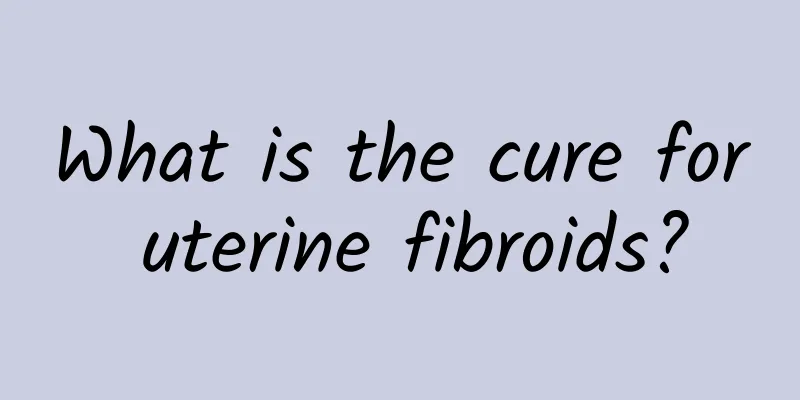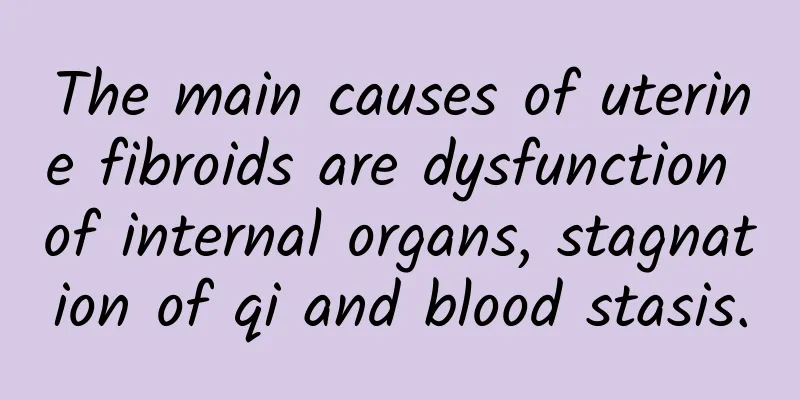Tips to relieve dysmenorrhea in daily life

|
Dysmenorrhea can cause headaches, irritability, fatigue and even shock in women, seriously affecting their normal life and work. In order to reduce the physical and mental discomfort caused by dysmenorrhea, the following are some practical methods to relieve dysmenorrhea. Women with dysmenorrhea may wish to try them. 1. Exercise regularly Appropriate exercise can effectively relieve women's dysmenorrhea symptoms, especially on the eve of menstruation. Walking or engaging in other moderate exercise can help relax muscles and promote blood circulation, strengthen physical fitness, and relieve various pains during menstruation. 2. Reduce fat intake Fat can increase estrogen levels and aggravate dysmenorrhea symptoms, whether it is animal fat such as chicken, beef, pork, fish, or vegetable oil such as peanut oil. Therefore, women during menstruation should eat less fatty foods and consume more cereals, vegetables, beans and other plant foods to excrete unnecessary estrogen from the body. 3. Take painkillers If women have severe dysmenorrhea symptoms, they can temporarily take aspirin, Yuanhuzhitong pills and paracetamol to relieve dysmenorrhea. When dysmenorrhea begins, take one tablet with milk, which will not hurt the stomach and will prevent dysmenorrhea. 4. Chinese medicine foot bath Foot soaking is a common remedy for quickly solving dysmenorrhea. A professional Chinese medicine practitioner can prescribe some Chinese medicine that has the effects of warming the meridians and dispelling cold, promoting blood circulation and dredge collaterals. Soak your feet in hot water as prescribed by the doctor, generally for 20 minutes each time, and it is best to have a slight sweat. 5. Practice Yoga Yoga classes are an effective way to regulate your body and mind and relieve menstrual cramps. To do this, kneel down with your knees bent and sit on your heels. Place your forehead on the ground and stretch your arms out to your sides. Hold this position for as long as possible until you feel uncomfortable. |
<<: Two points to note in laparoscopic treatment of ovarian cysts
>>: Focus on 3 aspects of psychological care for patients with artificial abortion
Recommend
Uterine fibroids examination
If you want to check the size, location and degen...
What to do if you have premature ovarian failure
The ovaries are the reproductive organs of women ...
Is the cure rate of coagulation dysfunction in abortion high?
In China, the incidence of habitual miscarriage h...
What to do when you have back pain during menstruation
Back pain during menstruation is a common discomf...
What are the advantages of laparoscopic treatment of ectopic pregnancy
There are many surgical methods for treating ecto...
What diet should patients with congenital absence of vagina pay attention to?
What are the dietary taboos for congenital absenc...
What are the causes of female adnexitis?
What are the causes of female adnexitis? Adnexiti...
Analysis of what are the symptoms of uterine fibroids
What are the symptoms of uterine fibroids ? Becau...
Can women with cervicitis have sex? What are the nursing methods for cervicitis?
In life, most married female friends suffer from ...
What is the reason for dull pain in uterine fibroids? What should I do if I have dull pain in uterine fibroids?
Uterine fibroids are common benign tumors in wome...
Symptoms of cervical hypertrophy women need to know clearly
Cervical hypertrophy is a common disease among wo...
Diet therapy for irregular menstruation
Nowadays, many people who suffer from diseases th...
Will soaking your feet affect your menstruation?
Foot soaking usually does not have a significant ...
How much does it cost to treat cervical erosion with Lip Knife?
How much does it cost to treat cervical erosion w...
What are the common treatments for chronic adnexitis?
What are the methods for treating chronic adnexit...









